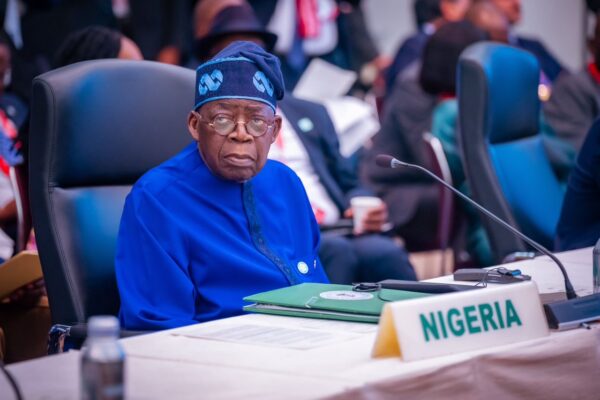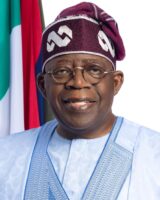President Bola Tinubu has just stepped onto Japanese soil for TICAD 9. The Tokyo International Conference on African Development (TICAD) has long been a fixture of Japan-Africa relations.
Over the next three days, he plans to position Nigeria not as a beneficiary, but as an active collaborator, seeking strategic investments, industrial partnerships, and pathways to reshape Africa’s economic future.
But then, a critical question lingers: is this a genuine partnership or a rebranded aid bazaar? The answer lies not just in lofty promises but in tangible actions. But it also lies in Africa’s ability to negotiate better terms.
The Evolution of TICAD
Since its inception, TICAD has evolved from a symbolic gathering to a multisectoral platform that increasingly emphasizes African ownership in policy design and execution.
The most recent conference, TICAD 8 in Tunis, focused on human resource development, governance, peace, stability, and sustainability.
Japan has followed through with capacity-building efforts, training thousands in peacekeeping and governance roles, and is now mobilizing a significant USD 1.5 billion in impact investments to support sustainable development and emissions reduction.
This evolution is timely. Western aid flows are shrinking, and China’s assertive economic diplomacy is reshaping Africa’s development landscape.
TICAD offers Japan a unique positioning: quality-driven development financing and affordable loans as alternatives to Beijing’s debt-heavy models.
Kenya’s yen-denominated loan backed by Japan’s NEXI is a case in point.
It is offering lower-cost financing tied to infrastructure projects such as the Nacala Corridor linking Zambia to Mozambique’s port.
TICAD in a Changing Global Order
TICAD9 takes place against the backdrop of waning U.S. global influence. Under President Donald Trump, Washington’s “America First” policies, tariff wars, and retreat from multilateralism weakened U.S. engagement in Africa, creating a strategic vacuum.
Japan has seized this opening with soft power diplomacy. Unlike China’s transactional approach or the U.S.’s increasingly security-driven posture, Japan is framing TICAD as a partnership of equals.
A partnership focused on co-creation, technology transfer, and sustainable industrialization.
By offering affordable financing, human capital investments, and climate-resilient strategies, Tokyo advances its geopolitical objectives subtly. It is securing critical mineral supplies, diversifying energy partnerships, and embedding Japanese firms deeper into Africa’s value chains.
As the U.S. influence wanes and China’s debt diplomacy faces mounting pushback, Japan positions TICAD as the “third way”.
The framing is that of a soft power platform balancing economic diplomacy with developmental ethics.
Addressing TICAD’s Persistent Criticisms
Despite its promise, TICAD still faces three enduring criticisms:
The “begging mentality” trap — As Kenyan scholar Makau Mutua notes, African leaders risk framing TICAD as a “donor conference” rather than a forum for mutually beneficial investment. Without a shift in mindset, Africa remains a passive recipient.
Weak private sector traction — Japan’s private sector engagement in Africa remains modest compared to China’s, with most projects still driven by government-to-government agreements. Without African-led business partnerships, TICAD’s transformational potential is limited.
Marginalizing civil society and innovation hubs — Youth, women, advocacy groups, and local innovators are often token participants, leaving solutions detached from grassroots realities.
Securing Africa’s Interests: A Nigerian-led Roadmap
For Nigeria and other African nations, TICAD 9 must be a negotiation table, not a photo opportunity. To extract maximum value, Africa must:
Demand Technology Transfer, Not Just Capital
Japan’s expertise in green energy, manufacturing, and smart infrastructure must translate into localized innovation hubs and vocational training pipelines that empower African industries.
Leverage Collective Bargaining Through the AU
Presenting a unified continental position under Agenda 2063 would amplify Africa’s negotiating power. A fragmented approach risks Africa being played off against itself.
Insist on Balanced Risk-Sharing
Concessional loans should avoid hidden conditionalities and promote joint-venture structures where African governments and businesses co-own projects.
Embed Private Sector and Diaspora Channels
Nigerian-led diaspora networks, particularly in sectors like fintech, renewable energy, and healthcare, should be formally integrated into TICAD frameworks to ensure African innovation drives implementation.
Push for Transparent Monitoring Mechanisms
Establish joint Africa-Japan oversight bodies to track the delivery of TICAD commitments, ensuring pledges materialize into measurable outcomes.
The Bigger Picture
TICAD9 is not just another development summit. It represents a strategic contest for influence in Africa amid shifting global power dynamics. For Japan, it is soft power in action.
For Africa, led by Nigeria, it must be a catalyst for agency. It must be made an opportunity to negotiate on Africa’s own terms.
If Africa treats TICAD as merely another aid forum, the continent risks entrenching dependency. But if Nigeria and its peers approach it as a platform for co-creation, TICAD could become the launchpad for Africa’s industrial renaissance.
As the summit continues, Nigeria’s focus on technology, capacity building, and financial reform, reinforced by President Tinubu’s clear message, positions the Giant of Africa as a key architect of Africa’s next chapter. What happens now will determine whether this is just a visit, or a turning point.
This opinion editorial was inspired by my interview with TVC’s Precious Amayo on The World Now, Wednesday 20 August 2025, evaluating the kickoff of TICAD9






